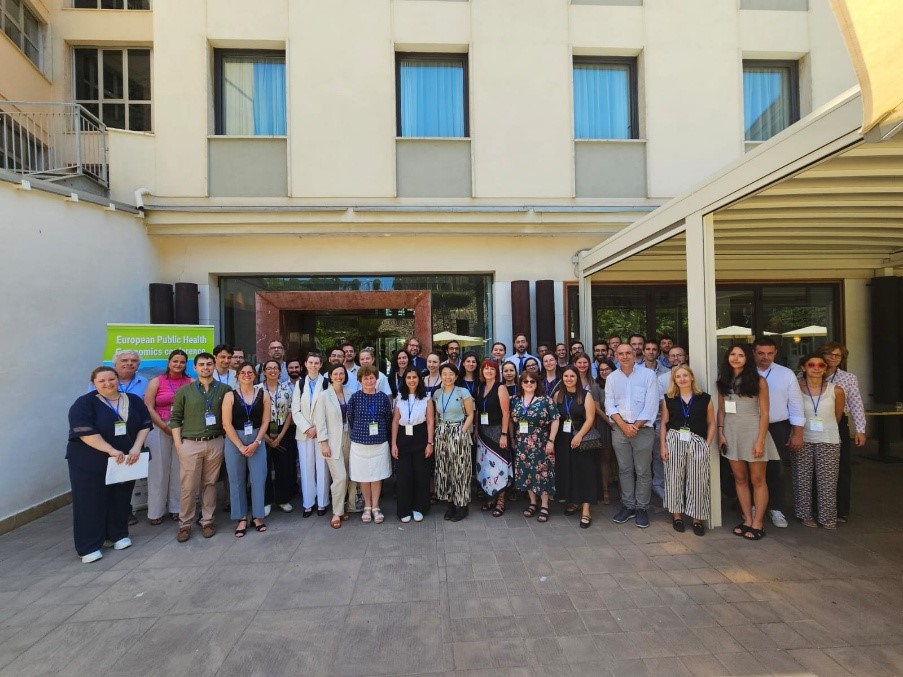Conference Programme
At the conference, leading researchers and professionals in the field explored the practical applications of “Public Health Economics” in their daily work, ranging from local initiatives to global studies. The program features a diverse selection of sessions, including in-depth discussions on working papers, abstract presentations, project showcases, and interactive skill-building seminars.
We were honoured to welcome Miqdad Asaria from the London School of Economics (LSE) as our keynote speaker, with a presentation on “Health Equity and Climate Change” through a Public Health Economics lens.
Click here for the programme.
Highlights
Over 70 researchers and professionals gathered in Palermo to participate in the 1st European Public Health Economics Conference. Co-organized by the EUPHA Public Health Economics Section, SiTi, AIES, the University of Palermo, and BEST-COST, the event marked a pivotal moment for researchers, policymakers, economists, and public health professionals.
The two-day conference focused on the pivotal role of public health economics in forging fairer and more sustainable health systems. Miqdad Asaria (London School of Economics and Political Science) opened the conference with an inspiring session on the interconnections between health equity and climate change, highlighting how economic tools should be used to address structural imbalances that affect the most vulnerable individuals.
The EUPHA Public Health Economics Section set the tone for the more than 50 presentations across parallel sessions. With a commitment to intergenerational learning, these presentations were led by seasoned experts, PhD students, and early-career researchers. The presentations focused on a range of emerging topics in public health economics, such as:
- Pharmacoeconomics
- Health inequalities
- Economic evaluations of health interventions
- Cost-of-illness studies
- Resource allocation and system sustainability
- Mental health
- Ageing
Participants were invited to reflect on “What is Public Health Economics?” in the closing ceremony. Some of the most repeated answers were “equity”, “prevention”, “value”, “policy”, “prevention” and “impact”, which denotes that public health economics is a mindset dedicated to informed decision-making that can save and transform lives.
Organising Committee
João Vasco Santos, Vanessa Gorasso, Shehzad Ali, Filipa Sampaio, Michele Cecchini, Walter Mazzucco, Manon Legoff, Andreia Novais, Vera Pinheiro.
Scientific Committee
João Vasco Santos, Vanessa Gorasso, Shehzad Ali, Filipa Sampaio, Michele Cecchini, Walter Mazzucco, Ricardo Rodrigues, Mickaël Hiligsmann, Federico Cosenz, Paolo Li Donni, Valentino Dardanoni.


